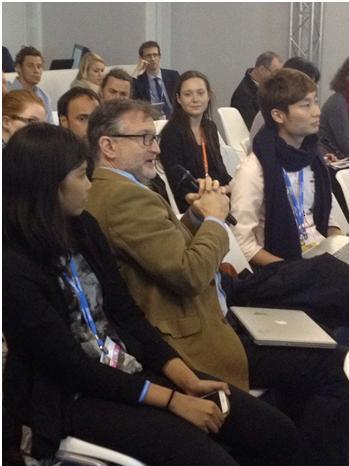
The WUN Sustainability Grant realizes the potential of the Global Farm Platform by facilitating the exchange of ideas and by supporting two international funding bid writing workshops to draft proposals for the following:
1. New Unified Dairy Genetics – Towards the ‘Dairy Stabiliser’ for the Tropics
Importation of cattle with greater genetic potential for milk yield than indigenous cattle has dominated attempts to improve dairy production in low‐middle income countries. However, relative performance in the tropics consistently disappoints; unlike indigenous breeds, introduced breeds adapt poorly, and require more attention. The development of a milking cow, dubbed the dairy stabilizer, has become a key focus for dairy breeding for the tropics. Comprehensive assessment of health and welfare of high‐producing bovine genotypes will be undertaken at representative model farms within the Global Farm Platform, including India (Kerala Veterinary and Animal Science University), Malawi (Small Scale Livestock and Livelihoods Programme), Ethiopia (Bahir Dar University) and China (Zhejiang University).
2. Towards State-of-the-Art Breeding in Grassland Production Systems
Breeding of extensively managed livestock is on the cusp of a technology‐led revolution: electronic ID, DNA pedigree, and the automatic recording of traits such as feed intake, body weight, and litter size. We focus on two areas:
a) Feed intake – A significant proportion of grazing animals utilize feed so poorly that they fail to meet market specifications. These animals have a disproportionate environmental impact due to low emissions efficiency. Inefficiency of feed utilization has a genetic component so feed records are often included in breeding programmes. This project develops work on grazing beef cattle in Canada and Australia. A key aim will be to standardize protocols for collection of records for young cattle, and on grassland production systems. WUN will then aim to globalize the system which will allow for effective and reliable selection of elite animals.
b) The ‘pan-genome’ concept applied to ruminant methane emissions –Methane emissions are inescapably linked to feed intake. We take advantage of this link to embrace the ‘pan-genome’, an exciting new concept that describes the full complement of genes of the host ruminant, including its rumen microbiota. This project builds on the foundation laid by the International Pan-genome Project at the University of Western Australia, where key genetic resources in sheep, cattle, and goats have been established. Thus, the concept will be extended to include the entire Global Farm Platform, and, by optimising pan-genome interactions, will increase our ability to reduce methane emissions.
The University of Bristol is hosting a major international conference ‘Steps to Sustainable Livestock’ 12-15 January 2015 (see http://www.globalfarmplatform.org)